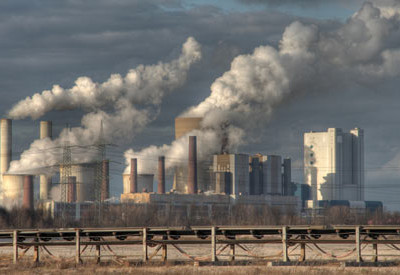Germany’s Role in Climate Policy
A short history of climate action in Europe’s economic powerhouse
We need to understand the history of climate action as we plan for the future. In terms of climate leadership, Americans tend to think of California. At the global level, however, Germany has its own claim to a leadership role, particularly in its early support for renewable energy. It has helped to shape EU climate policy, while at the same time its own policies were shaped by the EU’s.
Although its track record has some complexities, this timeline of German actions shows just its early and sustained attention to clean energy policy:
1990. The Federal Cabinet adopts its first climate target, a 25-30% cut in carbon emissions by 2005 under 1987 levels. [Note: the estimates of 1990 emissions that I found are not entirely consistent, with one estimate closer to 1.2 trillion tons.]
1991. Germany adopts feed-in tariff, setting a fixed price that utilities must pay for renewables, though rate turned out to be too low to make renewables competitive.
2000. Renewables are 6% of power.
Renewable Energy Act sets fixed feed-in tariffs and gives renewables priority on the grid. New rates are large enough to spark expansion of renewable industry.
2008. Fifteen percent of electricity is renewable.
2011. Germany decides to phase out nuclear power, complicating efforts to decarbonize the power sector.
2015. Renewables are a third of electricity consumption.
2016. Government adopts a sector-by-sector plan to reach 2050 climate goals.
2017. Feed-in tariffs are replaced by auctions for renewables.
2018. Climate law makes emission targets legally binding
2019. Renewables are 42% of electricity. Carbon emissions are 707 billion tons, a 30% cut below 1990 emissions.
Climate Action Act is adopted, with a 2050 net-zero target and 55% cuts by 2030 compared with 1990.
2020. German parliament adopts a law to end coal use by 2038 at the latest.
2021. German Constitutional Court requires more aggressive carbon reductions to protect rights of future generations.
Amendments to the Climate Action Law are adopted, setting a binding 2045 date for carbon neutrality, with a 2031 target of a 65% emissions reduction compared with 1990.
2023. After some foot-dragging Germany agrees on EU regulation to make cars carbon neutral by 2035 (either zero emissions or net-zero).
The government proposes new measures to help meet the 2030 climate target, including 80% renewables by 2030.
My foray into Germany climate policy left me with unanswered questions:
- What was the politics behind Germany’s history of climate action? How much of a role did the Green Party play? How did reunification impact climate policy?
- What has been the influence of Germany on EU policy and negotiating positions internationally?
- Germany has dragged its feet on EVs because of its powerful car industry. How much impact has that had on EU policy.
- How much did ending nuclear power impede German climate progress?
- Have German states (Länder) pursued their own climate policies, as in the U.S. , or has everything been at the federal level?
I’d love to hear from readers about these issues.
Reader Comments
2 Replies to “Germany’s Role in Climate Policy”
Comments are closed.







In short on #1, my take is that German climate policy in the past had been driven by the notion that renewable energy plus some efficiency can make the world a better place (plus creating jobs). With much of the early happy talk becoming (con)tested by reality, climate policy is becoming of age and now is about to reinvent itself in face of the diminishing returns of the old approach. Michael (Germany)
Thanks, Michael. It’s great to get feedback from someone who is more immersed in the situation.